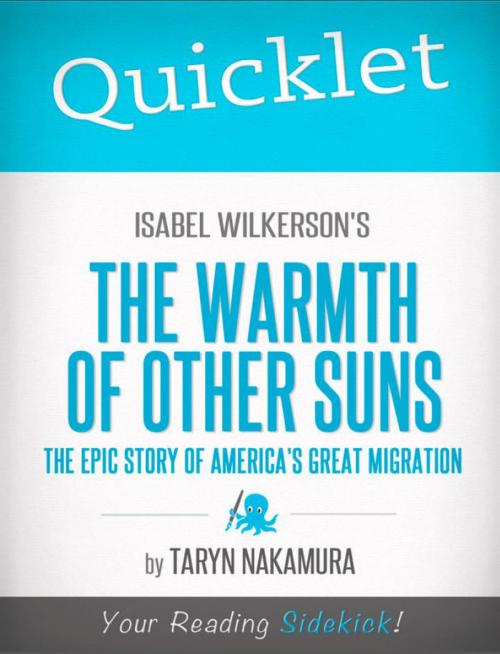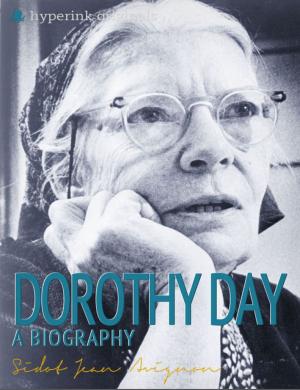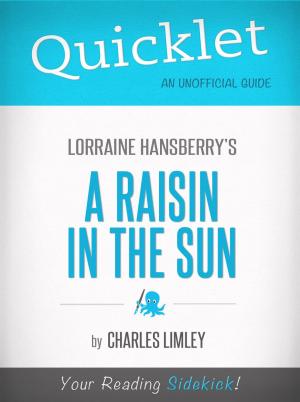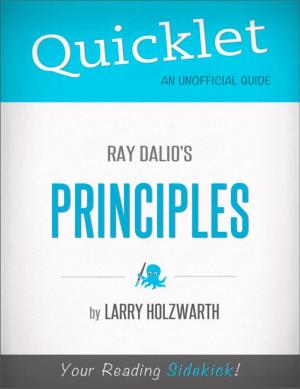Quicklet on Isabel Wilkerson's The Warmth of Other Suns: The Epic Story of America's Great Migration: Chapter-By-Chapter Commentary & Summary
Fiction & Literature, Literary Theory & Criticism, Nonfiction, History, Americas, United States| Author: | Taryn Nakamura | ISBN: | 9781614641544 |
| Publisher: | Hyperink | Publication: | March 14, 2012 |
| Imprint: | Hyperink - The Warmth of Other Suns Quicklet | Language: | English |
| Author: | Taryn Nakamura |
| ISBN: | 9781614641544 |
| Publisher: | Hyperink |
| Publication: | March 14, 2012 |
| Imprint: | Hyperink - The Warmth of Other Suns Quicklet |
| Language: | English |
ABOUT THE BOOK
Isabel Wilkerson's "The Warmth of Other Suns" is truly a labor of love. It took 15 years to research and write, as she interviewed over 1,200 people. Wilkerson tracked down her subjects at churches, quilting clubs, funerals, family reunions, and others. After preliminary rounds of interviews, she narrowed her search down to 30 people, and then chose the three main subjects who appear in the book.
She was racing against the clock to collect as many stories as possible from the migrants, whose numbers were starting to dwindle. Her book even covers the funerals of both George Starling and Robert Pershing Foster.
In order to write her story in a heartfelt manner, Wilkerson recreated Robert Foster's exhausting drive from Louisiana to California. Dr. Foster drove through three states without rest because blacks werent welcome at any motels in those regions. Wilkerson's trip was cut short by her parents, who insisted she stop before reaching dangerous levels of fatigue. At a particularly perilous tract of the drive, Wilkerson writes that her mother said, "You know he must have been ready to cry right about here."
MEET THE AUTHOR
Taryn was born and raised in Hawaii. She recently returned home after receiving a B.A. in English at Yale University. As a writing concentrator at Yale, Taryn focused on fiction, but as a Hyperink writer, she has learned that nonfiction can also be fun. In her free time, she likes to run at walking pace, haunt libraries, and eat pickles.
EXCERPT FROM THE BOOK
Critics have put Isabel Wilkerson's book on par with classics like "Roots" and "The Grapes of Wrath". The Wall Street Journal writes, "Ms. Wilkerson does for the Great Migration what John Steinback did for the Okies in his fiction masterpiece, The Grapes of Wrath; she humanizes history, giving it emotional and psychological depth." (The Great Northern Migration)
But Ms. Wilkerson's piece deserves a category of its own. Her book goes beyond both traditional and oral history. She avoided the style of Studs Terkel, opting for a more cohesive narrative. (A Writer's Long Journey to Trace the Great Migration)
Critics agree that Isabel Wilkerson's book is both beautifully written and thoroughly researched. Articles in the New York Times, Wall Street Journal, and The New Yorker can attest to that. The book's appearance on Best Book of the Year lists -- L.A. Times, The Washington Post, The New Yorker, The Economist, and more -- reflects the high quality of reporting.
Yet the critics diverge in their assessment of the ending of the book and our takeaway. As Kevin Boyle writes in his Chicago Tribune review, "In the end, though, Wilkerson herself seems to blink, arguing that, despite the struggles she so beautifully describes, the Great Migration was nothing less than the fulfillment of the American Dream as the migrants themselves defined it."
TABLE OF CONTENTS
- About the Book
- A Southerner Once Removed
- Overall Summary of The Warmth of Other Suns
- The South, 1915 to the 1970s
- Key Words and Historical Figures
- Major Characters
- Strangers in a Strange Land: Migrant Hierarchy
- What the Critics are Saying
- The Other Voices
- Interesting Facts
- Sources and Additional Reading
ABOUT THE BOOK
Isabel Wilkerson's "The Warmth of Other Suns" is truly a labor of love. It took 15 years to research and write, as she interviewed over 1,200 people. Wilkerson tracked down her subjects at churches, quilting clubs, funerals, family reunions, and others. After preliminary rounds of interviews, she narrowed her search down to 30 people, and then chose the three main subjects who appear in the book.
She was racing against the clock to collect as many stories as possible from the migrants, whose numbers were starting to dwindle. Her book even covers the funerals of both George Starling and Robert Pershing Foster.
In order to write her story in a heartfelt manner, Wilkerson recreated Robert Foster's exhausting drive from Louisiana to California. Dr. Foster drove through three states without rest because blacks werent welcome at any motels in those regions. Wilkerson's trip was cut short by her parents, who insisted she stop before reaching dangerous levels of fatigue. At a particularly perilous tract of the drive, Wilkerson writes that her mother said, "You know he must have been ready to cry right about here."
MEET THE AUTHOR
Taryn was born and raised in Hawaii. She recently returned home after receiving a B.A. in English at Yale University. As a writing concentrator at Yale, Taryn focused on fiction, but as a Hyperink writer, she has learned that nonfiction can also be fun. In her free time, she likes to run at walking pace, haunt libraries, and eat pickles.
EXCERPT FROM THE BOOK
Critics have put Isabel Wilkerson's book on par with classics like "Roots" and "The Grapes of Wrath". The Wall Street Journal writes, "Ms. Wilkerson does for the Great Migration what John Steinback did for the Okies in his fiction masterpiece, The Grapes of Wrath; she humanizes history, giving it emotional and psychological depth." (The Great Northern Migration)
But Ms. Wilkerson's piece deserves a category of its own. Her book goes beyond both traditional and oral history. She avoided the style of Studs Terkel, opting for a more cohesive narrative. (A Writer's Long Journey to Trace the Great Migration)
Critics agree that Isabel Wilkerson's book is both beautifully written and thoroughly researched. Articles in the New York Times, Wall Street Journal, and The New Yorker can attest to that. The book's appearance on Best Book of the Year lists -- L.A. Times, The Washington Post, The New Yorker, The Economist, and more -- reflects the high quality of reporting.
Yet the critics diverge in their assessment of the ending of the book and our takeaway. As Kevin Boyle writes in his Chicago Tribune review, "In the end, though, Wilkerson herself seems to blink, arguing that, despite the struggles she so beautifully describes, the Great Migration was nothing less than the fulfillment of the American Dream as the migrants themselves defined it."
TABLE OF CONTENTS
- About the Book
- A Southerner Once Removed
- Overall Summary of The Warmth of Other Suns
- The South, 1915 to the 1970s
- Key Words and Historical Figures
- Major Characters
- Strangers in a Strange Land: Migrant Hierarchy
- What the Critics are Saying
- The Other Voices
- Interesting Facts
- Sources and Additional Reading















